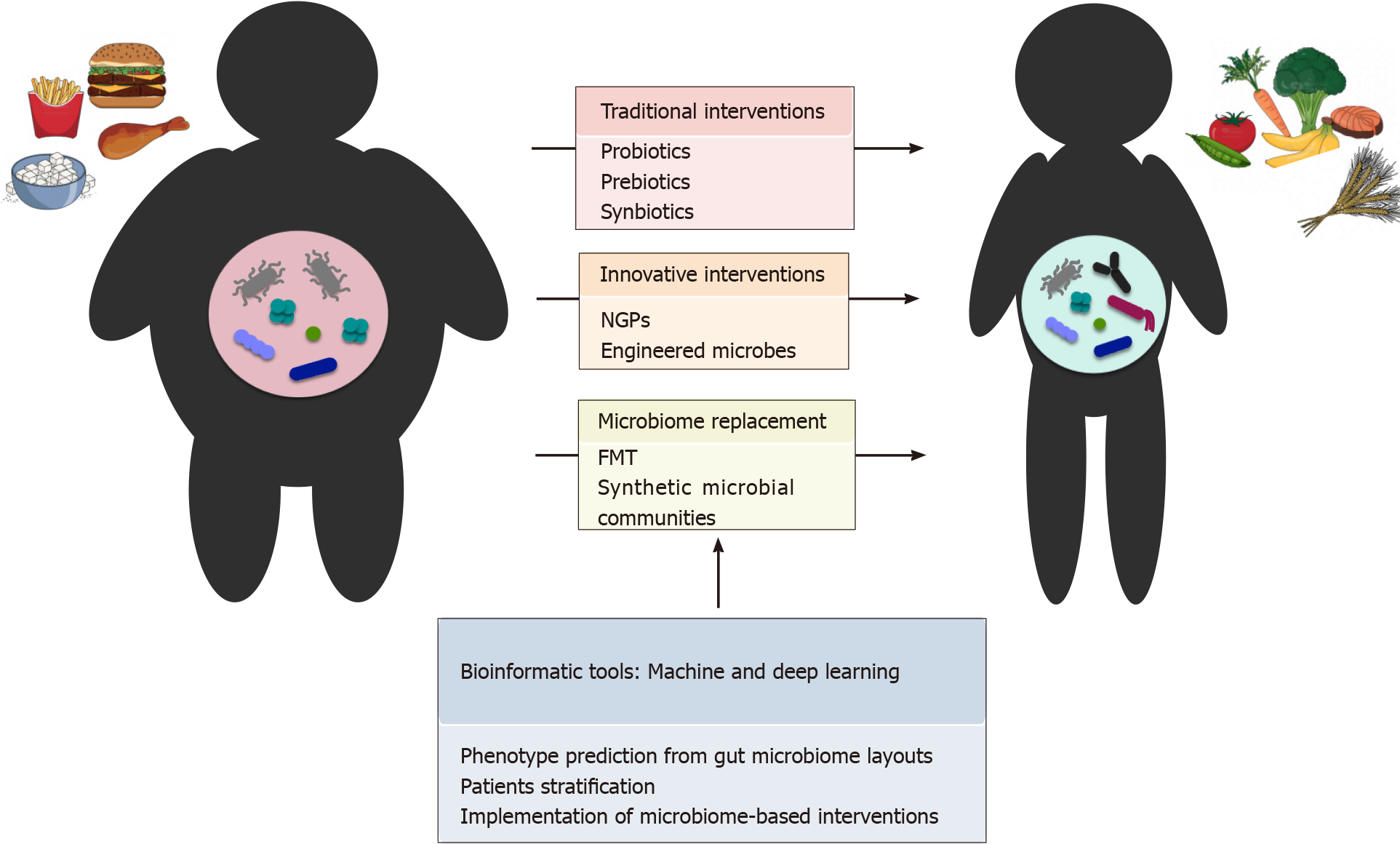Copyright
©The Author(s) 2021.
World J Gastroenterol. Nov 7, 2021; 27(41): 7041-7064
Published online Nov 7, 2021. doi: 10.3748/wjg.v27.i41.7041
Published online Nov 7, 2021. doi: 10.3748/wjg.v27.i41.7041
Figure 1 Overview of the main microbiome-based strategies currently in use or potentially effective in the prevention and treatment of obesity.
Traditional intervention strategies include dietary supplementation with prebiotics, probiotics and synbiotics, which have generally been shown to be moderately effective for the prevention and amelioration of obesity. Innovative strategies have therefore been implemented for improved treatment efficacy, using next-generation probiotics and non-pathogenic engineered microorganisms designed for the in-situ delivery of specific modulators. More recently, more direct modulation strategies based on gut microbiome replacement by means of fecal microbiota transplantation or synthetic communities, are being considered. In this scenario, bioinformatic tools, including machine and deep learning, could be crucial not only for the rational design of synthetic communities, but also for stratifying patients based on disease-associated phenotypes and thus predicting their health risks and outcomes. In the near future, all the accumulating knowledge about the gut microbiome and technological advances should lead to a rational implementation of innovative microbiome-based interventions geared towards personalized precision medicine. Food items were obtained from the Mind the Graph platform (https://mindthegraph.com/). NGPs: Next-generation probiotics; FMT: Fecal microbiota transplantation.
- Citation: Barone M, D'Amico F, Fabbrini M, Rampelli S, Brigidi P, Turroni S. Over-feeding the gut microbiome: A scoping review on health implications and therapeutic perspectives. World J Gastroenterol 2021; 27(41): 7041-7064
- URL: https://www.wjgnet.com/1007-9327/full/v27/i41/7041.htm
- DOI: https://dx.doi.org/10.3748/wjg.v27.i41.7041









